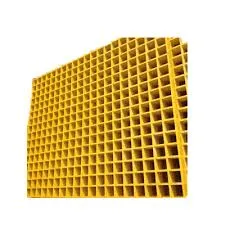
-
 Afrikaans
Afrikaans -
 Albanian
Albanian -
 Amharic
Amharic -
 Arabic
Arabic -
 Armenian
Armenian -
 Azerbaijani
Azerbaijani -
 Basque
Basque -
 Belarusian
Belarusian -
 Bengali
Bengali -
 Bosnian
Bosnian -
 Bulgarian
Bulgarian -
 Catalan
Catalan -
 Cebuano
Cebuano -
 China
China -
 China (Taiwan)
China (Taiwan) -
 Corsican
Corsican -
 Croatian
Croatian -
 Czech
Czech -
 Danish
Danish -
 Dutch
Dutch -
 English
English -
 Esperanto
Esperanto -
 Estonian
Estonian -
 Finnish
Finnish -
 French
French -
 Frisian
Frisian -
 Galician
Galician -
 Georgian
Georgian -
 German
German -
 Greek
Greek -
 Gujarati
Gujarati -
 Haitian Creole
Haitian Creole -
 hausa
hausa -
 hawaiian
hawaiian -
 Hebrew
Hebrew -
 Hindi
Hindi -
 Miao
Miao -
 Hungarian
Hungarian -
 Icelandic
Icelandic -
 igbo
igbo -
 Indonesian
Indonesian -
 irish
irish -
 Italian
Italian -
 Japanese
Japanese -
 Javanese
Javanese -
 Kannada
Kannada -
 kazakh
kazakh -
 Khmer
Khmer -
 Rwandese
Rwandese -
 Korean
Korean -
 Kurdish
Kurdish -
 Kyrgyz
Kyrgyz -
 Lao
Lao -
 Latin
Latin -
 Latvian
Latvian -
 Lithuanian
Lithuanian -
 Luxembourgish
Luxembourgish -
 Macedonian
Macedonian -
 Malgashi
Malgashi -
 Malay
Malay -
 Malayalam
Malayalam -
 Maltese
Maltese -
 Maori
Maori -
 Marathi
Marathi -
 Mongolian
Mongolian -
 Myanmar
Myanmar -
 Nepali
Nepali -
 Norwegian
Norwegian -
 Norwegian
Norwegian -
 Occitan
Occitan -
 Pashto
Pashto -
 Persian
Persian -
 Polish
Polish -
 Portuguese
Portuguese -
 Punjabi
Punjabi -
 Romanian
Romanian -
 Russian
Russian -
 Samoan
Samoan -
 Scottish Gaelic
Scottish Gaelic -
 Serbian
Serbian -
 Sesotho
Sesotho -
 Shona
Shona -
 Sindhi
Sindhi -
 Sinhala
Sinhala -
 Slovak
Slovak -
 Slovenian
Slovenian -
 Somali
Somali -
 Spanish
Spanish -
 Sundanese
Sundanese -
 Swahili
Swahili -
 Swedish
Swedish -
 Tagalog
Tagalog -
 Tajik
Tajik -
 Tamil
Tamil -
 Tatar
Tatar -
 Telugu
Telugu -
 Thai
Thai -
 Turkish
Turkish -
 Turkmen
Turkmen -
 Ukrainian
Ukrainian -
 Urdu
Urdu -
 Uighur
Uighur -
 Uzbek
Uzbek -
 Vietnamese
Vietnamese -
 Welsh
Welsh -
 Bantu
Bantu -
 Yiddish
Yiddish -
 Yoruba
Yoruba -
 Zulu
Zulu
Corrosion Resistant FRP Solutions | Durable and Lightweight Materials
Corrosion-Resistant FRP A Revolution in Material Science
Corrosion is a pervasive challenge across various industries, affecting equipment, infrastructure, and marine environments. The cost of corrosion management is substantial, leading to increased downtime and maintenance expenses. To combat these issues, Fiber Reinforced Polymer (FRP) has emerged as a revolutionary material that offers exceptional corrosion resistance. This article will explore the attributes of corrosion-resistant FRP, its applications, and its advantages over traditional materials.
Corrosion-Resistant FRP A Revolution in Material Science
The versatility of FRP makes it suitable for a wide range of applications, from construction and infrastructure to aerospace and automotive industries. In the construction sector, FRP can be used for reinforcing structures, replacing steel rebar in concrete, and constructing bridges that are resistant to chemical spills and saltwater exposure. Additionally, FRP is increasingly employed in water treatment facilities, where components are constantly exposed to corrosive substances.
corrosion resistant frp

Another significant application is in the marine industry, where vessels and infrastructures are subject to severe environmental conditions. FRP can be designed to withstand saltwater corrosion, reducing maintenance needs and extending the lifespan of marine assets. As a lightweight material, FRP is also advantageous in reducing overall structure weights, leading to enhanced fuel efficiency in marine transport and lower logistical costs.
In addition to its practical applications, FRP also offers environmental benefits. By extending the lifespan of equipment and structures, FRP contributes to sustainability efforts. The reduced frequency of replacements and repairs minimizes the consumption of resources, aligning with modern eco-friendly initiatives. Furthermore, the manufacturing processes for FRP can be optimized to reduce waste and energy consumption.
In conclusion, corrosion-resistant FRP represents a significant advancement in material science, providing a robust solution to the challenges posed by corrosion in various industries. Its unique properties make it a preferred choice for applications that demand durability and resilience. By investing in corrosion-resistant FRP, industries not only enhance their operational efficiency but also contribute to sustainable practices, paving the way for a more resilient and environmentally responsible future.
Latest news
-
Exploring the Benefits of Top Hammer Drifter Rods for Enhanced Drilling PerformanceNewsJun.10,2025
-
High-Precision Fiberglass Winding Machine for GRP/FRP Pipe Production – Reliable & Efficient SolutionsNewsJun.10,2025
-
FRP Pipes & Fittings for Shipbuilding - Corrosion-Resistant & LightweightNewsJun.09,2025
-
Premium FRP Flooring Solutions Durable & Slip-ResistantNewsJun.09,2025
-
Premium Fiberglass Rectangular Tanks Durable & Lightweight SolutionNewsJun.09,2025
-
Tapered Drill String Design Guide Durable Performance & UsesNewsJun.09,2025









